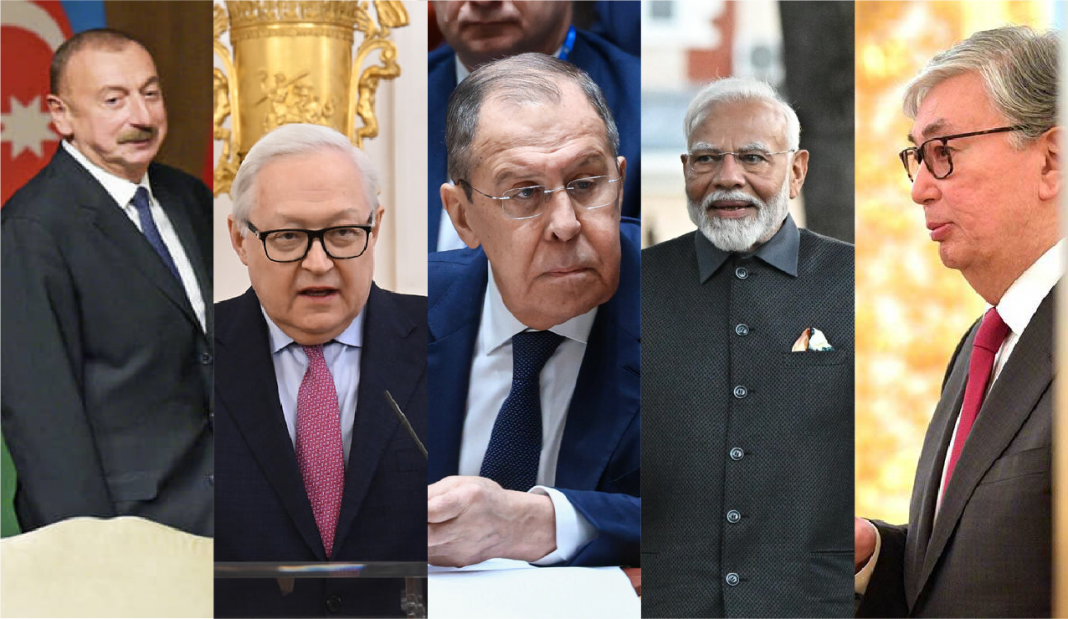This report presents key events that had an important impact on political, economic and social processes inside Russia.
Based on the results of the past week, the following trends can be identified in the following thesis:
- Putin continues to demonstrate that it is he who leads all economic processes, which not only indicates the concentration of power around one leader, but also the reality that there are no serious crisis changes in the Russian economy (if there were, Putin would have shifted responsibility for the economy to the Government). In this situation, however, he shows that all the positive achievements are due to his personality alone.
- During his telephone conversation with Putin, Narendra Modi informed Putin about his visit to Ukraine and his talks with Vladimir Zelensky. Of late, Modi has been trying to mould India/Bharat policy in such a way as to turn his country into a bridge between the Global South and the Global West. His initiatives go far beyond resolving the Ukrainian issue, which in a certain part of the world is considered local and far from being the main issue. His task is to organize a dialogue between the two parts of the divided world on as many contentious issues as possible (including the Ukrainian issue). That is why Modi’s mission is extremely important and India’s initiatives should be looked at with great interest.
- Russia has repeatedly indicated that it is clarifying the provisions of its own nuclear doctrine and has also indicated the possibility of using nuclear weapons. Ryabkov (known as the chief diplomatic hawk in the Russian Foreign Ministry) is in fact sending another signal to the West that Russia will not give up the use of nuclear weapons if the situation worsens. Ryabkov is trying, first, to create threats in case the U.S. allows Ukraine to use long-range weapons on Russian territory (which would be perceived in Russia as a factor allowing the use of nuclear weapons), and also to push the U.S. to re-sign the RSMD and nuclear arms control treaties.
This digest looks at the following issues that were most relevant to Russia between 26 August and 1 September:
1. Meeting on economic issues
2. Vladimir Putin’s telephone conversation with Kazakh President Kassym-Jomart Tokayev. 3.
3. Vladimir Putin’s telephone conversation with Indian Prime Minister Narendra Modi. 3;
4. telephone conversation with President Ilham Aliyev of Azerbaijan. 4;
5. Sergey Lavrov’s statement on Ukraine;
6. Ryabkov’s statement on the revision of Russia’s nuclear doctrine.
This Content Is Only For Subscribers
- Meeting on economic issues
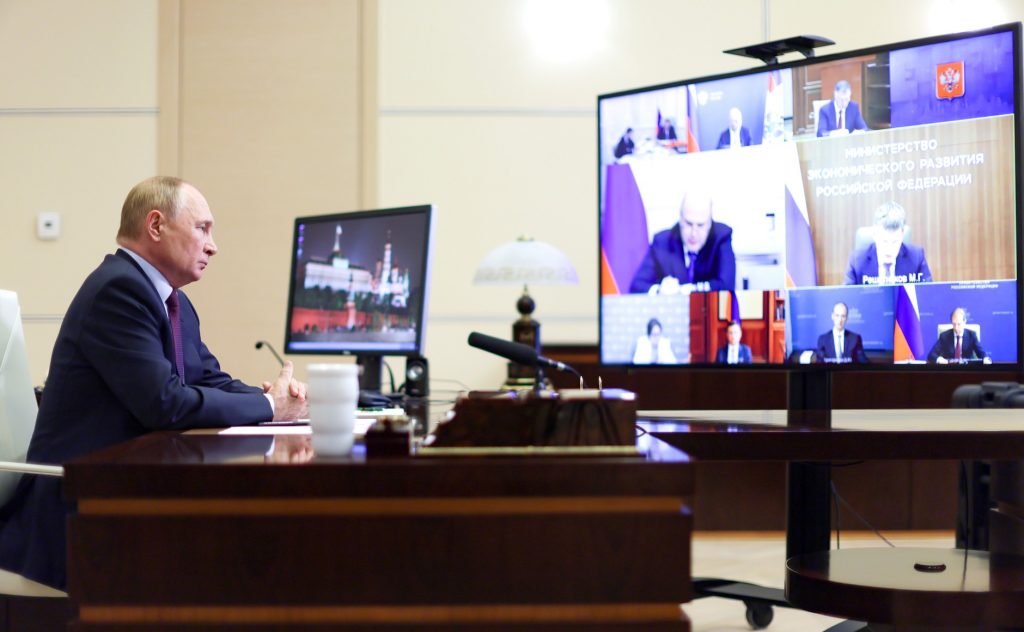
On Monday, 26 August, Vladimir Putin held a meeting on economic issues via videoconference. It is noted that during the meeting discussed the main directions of the country’s economic policy for the period up to 2030, including taking into account the implementation of the decree on national development goals of Russia.
The meeting was attended by Prime Minister Mikhail Mishustin, Head of the Presidential Administration Anton Vaino, First Deputy Prime Minister Denis Manturov, Deputy Prime Minister – Head of the Government Staff Dmitry Grigorenko, Deputy Prime Minister Alexander Novak, Deputy Prime Minister Marat Khusnullin, Deputy Head of the Presidential Administration Maxim Oreshkin, Minister of Economic Development Maxim Reshetnikov, Finance Minister Anton Siluanov, Central Bank Chairman Elvira Nabiullina.
Key points:
- Putin: ‘As you know, in this year’s Address to the Federal Assembly, as well as in the Decree on National Goals, the main priorities for Russia’s development up to 2030 and in the perspective up to 2036 were set.’
- Putin: ‘We are talking about tasks in the areas of demography and social sphere, ecology and infrastructure, education and upbringing of young people, science and technological progress. In short, all the topics that determine the value, state and economic sovereignty of our country, its ability to develop confidently and progressively in a dynamically changing world are covered.’
- Putin: ‘I repeat: in implementing our plans, we rely primarily on the state of affairs in the economy, because it is the industrial, commercial, logistical, financial potential that determines the resource and budgetary capabilities of the state, and forms the funds that are allocated for key, systemically important tasks, for improving the well-being of our citizens’.
- Putin: ‘The Russian economy continues to grow at good, high rates, just as it did last year. According to estimates for the first half of the year, the gross domestic product added 4.6 per cent, and industrial production grew by 4.4 per cent. At the same time, manufacturing industries traditionally set the bar higher: here the dynamics is plus eight per cent’.
- Putin: ‘Consumer demand remains strong. Retail trade turnover has increased by 8.8 per cent over six months. I should note that this result is mainly supported by the growth of wages. In real terms, adjusted for inflation, minus inflation, they added 10.1 per cent in January-May this year. At the same time, unemployment remains record low in Russia. In June it was 2.4 per cent.’
- Putin: ‘The growth of the economy and wages is having a positive impact on the federal budget. In the first seven months of this year, its revenues approached 20 trillion roubles. This is 36 per cent higher than last year. This is a good indicator. And, what is also important, almost two-thirds of budget revenues were so-called non-oil and gas revenues, which do not depend on hydrocarbon exports.’
Outcomes/Predictions:
Putin continues to demonstrate that he is the one in charge of all economic processes, which not only speaks to the concentration of power around one leader, but also to the reality that there are no serious crisis changes in the Russian economy (if there were, Putin would have shifted responsibility for the economy to the Government). In this situation, however, he shows that all the positive achievements are related only to his personality.
At the same time, we can state that most of the figures are true, no matter how much Putin’s opponents would like to see a different picture. However, there are also enough problems in the Russian Federation, but they do not affect the basic well-being of citizens. Those electoral groups on whose support Putin counts are happy with the current state of affairs. The oligarchs who suffered from the sanctions realise that even Putin’s overthrow will not change the situation, they will not be able to return to their previous markets. That is why the weekly picture of the success of the Russian economy may play in Putin’s favour for a long time to come.
2. Vladimir Putin’s telephone conversation with Kazakh President Kassym-Jomart Tokayev
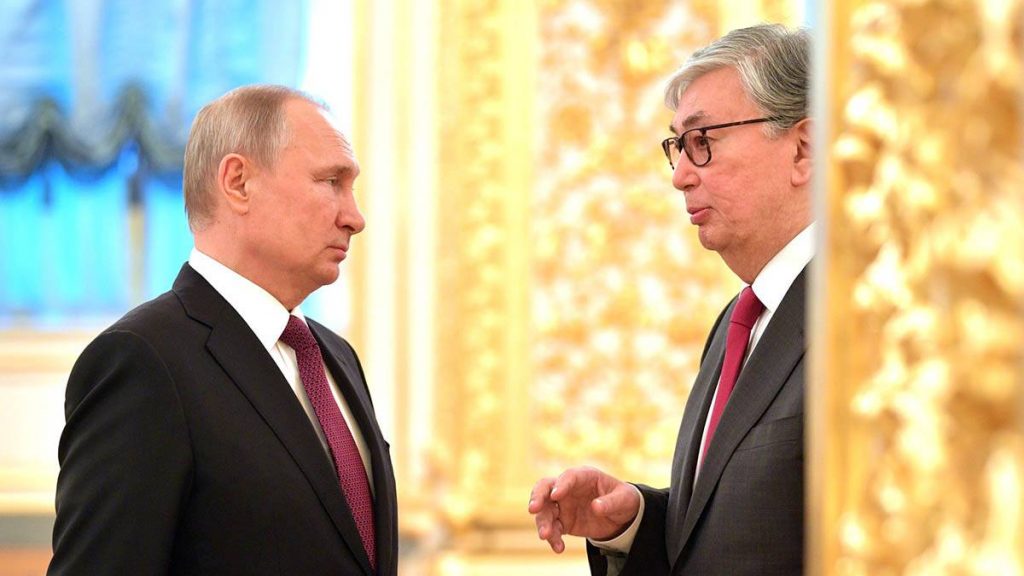
On Monday, 26 August, at the initiative of the Russian side, Vladimir Putin had a telephone conversation with Kazakh President Kassym Zhomart Tokayev. According to official information, the main topic of the conversation was the discussion of topical issues of further development of mutually beneficial bilateral cooperation, including in the energy sector. Other details on the outcome of the conversation are not publicly reported.
Outcomes/Predictions:
This is a traditional contact, which is very important in terms of developing Russian projects of an energy bridge to Uzbekistan and addressing the latent resistance to this project on the part of Kazakhstan. Apparently, Putin and Tokayev discussed options for compensating Kazakhstan’s interests in this project. According to Ascolta, they also discussed Kazakhstan’s insurance for Russian oil product needs in the face of certain problems related to Ukrainian drones flying into Russian refineries.
3. Vladimir Putin’s telephone conversation with Indian Prime Minister Narendra Modi
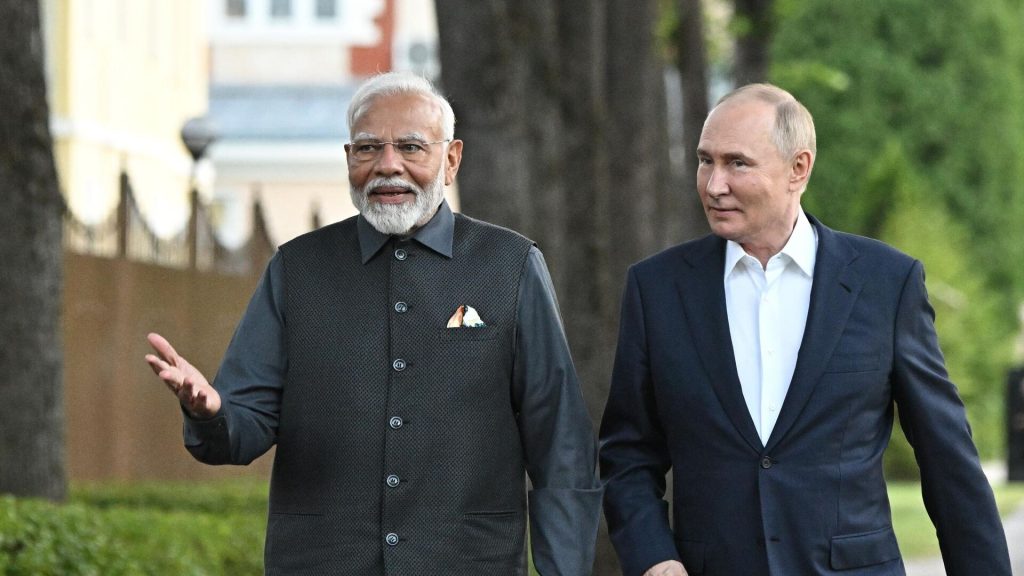
On Tuesday, 27 August, a telephone conversation between Vladimir Putin and Indian Prime Minister Narendra Modi took place at the initiative of the Indian side. The main topic of the conversation was the discussion of the results of Modi’s visit to Kiev and his meeting with Vladimir Zelensky. Earlier, Modi also had a telephone conversation with US President Joe Biden.
During the conversation, Narendra Modi emphasised his interest to contribute to a possible political and diplomatic settlement of the situation around Ukraine.
The conversation also focused on the practical implementation of the trade and economic agreements reached after Modi’s official visit to Russia in July. The sides expressed satisfaction with the level of interaction between the two countries in BRICS. Narendra Modi reiterated his readiness to participate in the BRICS summit in Kazan in October under the Russian chairmanship.
Outcomes/Predictions:
Narendra Modi briefed Vladimir Putin on his visit to Ukraine and talks with Vladimir Zelensky. In recent times, Modi has been trying to mould India/Bharat policy in such a way as to turn his country into a bridge between the Global South and the Global West. His initiatives go far beyond resolving the Ukrainian issue, which in a certain part of the world is considered local and far from being the main issue. His task is to organize a dialogue between the two parts of the divided world on as many contentious issues as possible (including the Ukrainian issue). That is why Modi’s mission is extremely important and India’s initiatives should be looked at with great interest.
4. Telephone conversation with President of Azerbaijan Ilham Aliyev
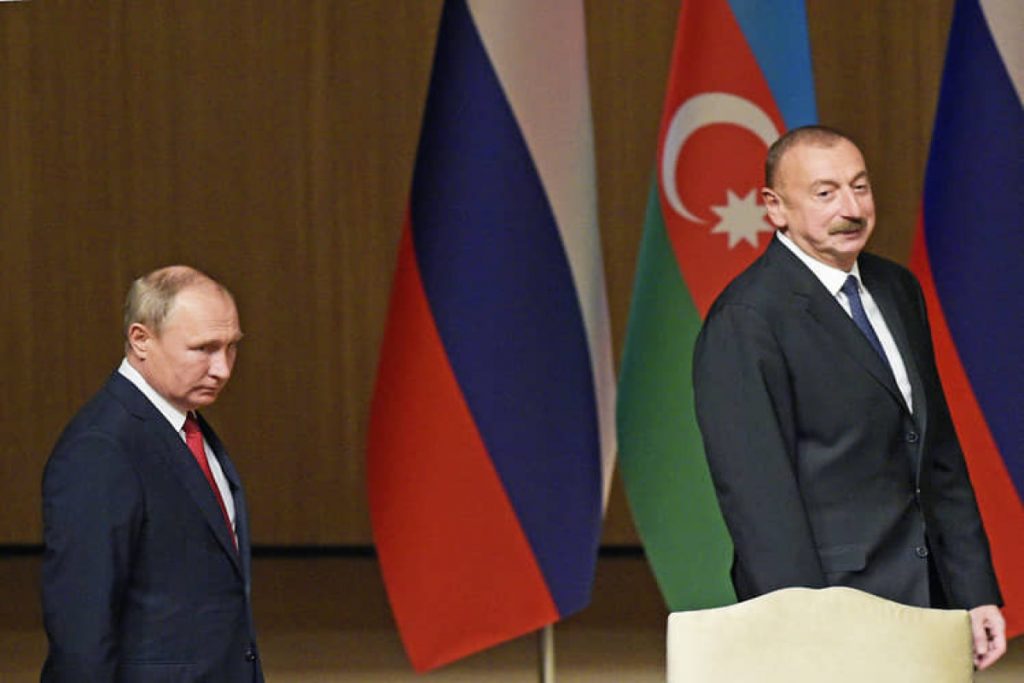
On Wednesday, 28 August, at the initiative of the Russian side, Vladimir Putin had a telephone conversation with President of Azerbaijan Ilham Aliyev. During the conversation, the sides discussed the results of Putin’s recent visit to Baku, and noted the consistent implementation of the agreements reached earlier.
The sides also discussed the current situation in the South Caucasus, including the preparation of the Azerbaijani-Armenian peace treaty, delimitation and demarcation of the border and unblocking of transport communications between the two states. It is important to note that the Russian president had a telephone conversation with Armenian Prime Minister Nikol Pashinyan the day before.
Outcomes/Predictions:
A courtesy call, which the sides usually organise after successful state and official visits. However, it once again emphasises the attention Russia pays to the development of relations with Azerbaijan. Obviously, we can expect new initiatives regarding rapprochement between Moscow and Baku in the near future.
5. Sergey Lavrov’s statements on Ukraine
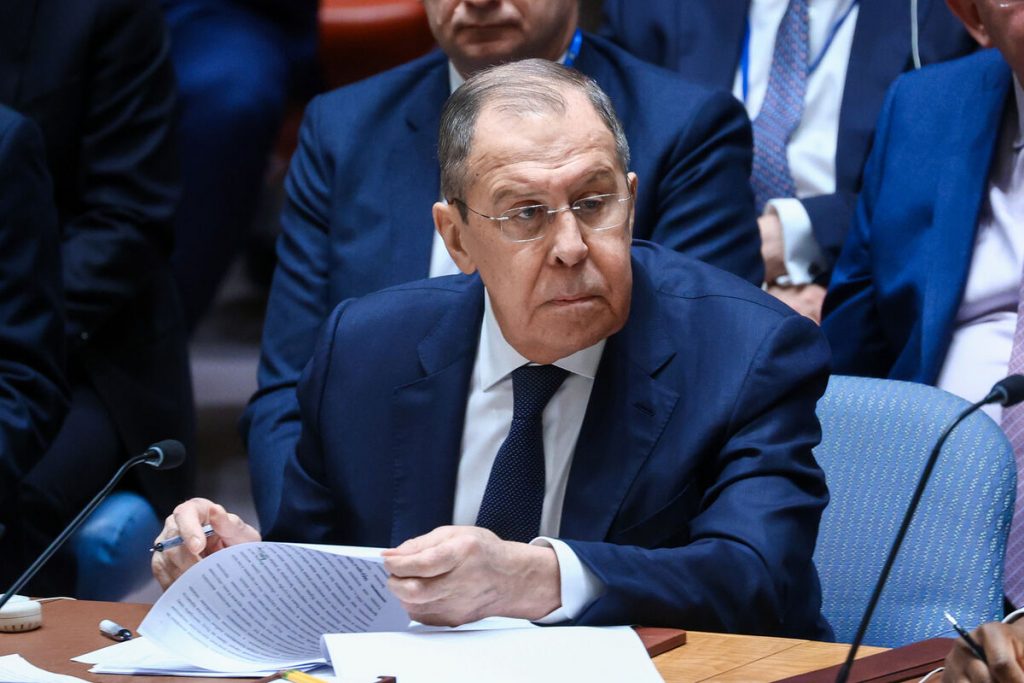
On Saturday, 31 August, commenting on the situation around Ukraine, Foreign Minister Sergey Lavrov made a number of statements demonstrating a partial renewal of the Kremlin’s strategy towards Ukraine. In particular, the Russian Foreign Minister said that the Russian side completely rejects the possibility of Ukraine joining NATO: ‘There is no question of Ukraine joining NATO. This is not something that is a ‘red sheet’. It is impossible.’
Lavrov also said that ‘those who are trying to present us with “solutions”: they say that we should leave Ukraine what it has now, take the rest to NATO and everything will be fine, are fantasists and provocateurs.’
According to the Foreign Minister it is difficult for him to judge what was the design and purpose of the Kursk region: ‘What was their aim and intent, it is very difficult to judge. But now political scientists are discussing it. And even Zelensky said that they would need it for subsequent exchanges. That’s why, they say, and takes prisoners, and square kilometres he wants to seize. This is so simple-minded and naive.’
At the same time, Lavrov emphasised: ‘We are not discussing our territory with anyone. We are not negotiating about our territory.’
Bottom line/predictions:
Lavrov’s statement shows that Russia remains on unchanged positions regarding Ukraine’s prospects for NATO membership. And the war on the Russian side will continue until the West gives clear guarantees regarding Ukraine’s non-accession to the North Atlantic Alliance. This is the main goal of the hostilities. In fact, with such statements Russia is trying to demonstrate that it controls the situation and is ready to actually dictate its own terms. In this context, it is extremely important to observe the West’s response, which may be both diplomatic and quite the opposite (including serious consequences for the further development of global events).
6. Ryabkov’s statement on the revision of Russia’s nuclear doctrine
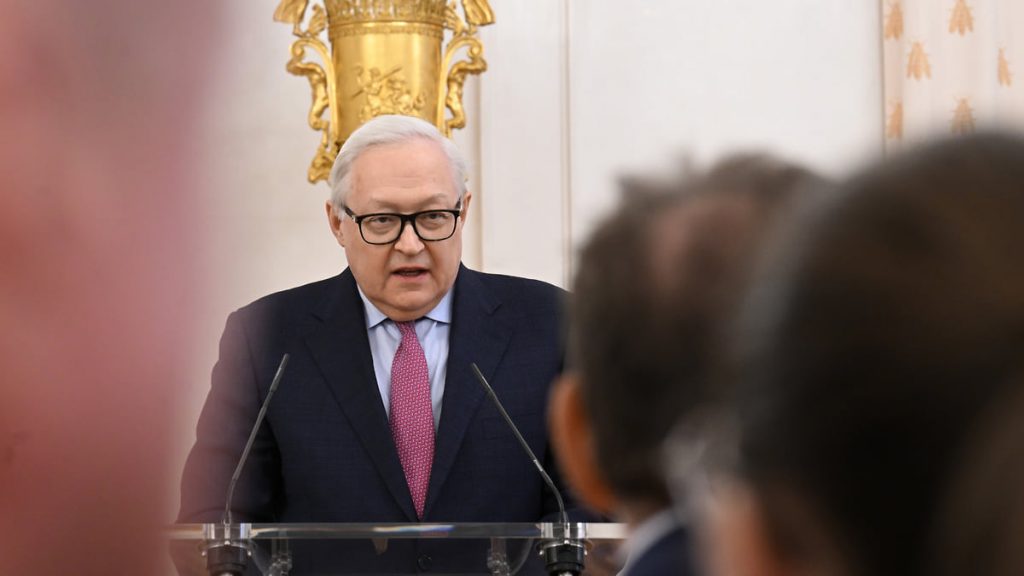
On Sunday, 1 September, Russian Deputy Foreign Minister Sergei Ryabkov said that work to revise Russia’s nuclear deterrence doctrine is at an advanced stage.
Ryabkov noted that ‘as it has been repeatedly said from our side, the work is at an advanced stage, and there is a clear commitment to make a correction, which is also conditioned by the study and analysis of the experience of the development of conflicts in recent years, including, of course, everything related to the escalation course of our Western adversaries in connection with the [so-called] “NWO”.’
He also added that the process of finalising the relevant document is now underway, but it is too early to talk about specific deadlines for its completion. ‘The time for finalising this work is a rather difficult question, given that we are talking about the most important aspects of ensuring our national security.’
It is important to note that according to the ‘Fundamentals of Russia’s State Policy in the Field of Nuclear Deterrence’ of 2020, Russia’s use of nuclear weapons is possible if the enemy uses this or other types of weapons of mass destruction against Russia and its allies, if reliable information is received about the launch of ballistic missiles to attack Russia and its allies, if the enemy affects the facilities necessary for retaliatory actions by nuclear forces, as well as in the case of aggression against Russia using conventional weapons, when the very existence of the state is at stake
Outcomes/Predictions:
Russia has repeatedly indicated that it is clarifying the provisions of its own nuclear doctrine and has also indicated the possibility of using nuclear weapons. Ryabkov (known as the chief diplomatic hawk in the Russian Foreign Ministry) is actually sending another signal to the West that Russia will not give up the use of nuclear weapons if the situation worsens. Ryabkov is trying, firstly, to create threats in case the US allows Ukraine to use long-range weapons on Russian territory (this moment will be perceived in Russia as a factor allowing the use of nuclear weapons), and he is also pushing the US to re-sign the RSMD and nuclear arms control treaties.
It is noteworthy that against the backdrop of Ryabkov’s statements, a number of media outlets began to spread information about the appearance on the territory of occupied Crimea of specialised military equipment belonging to the 12th Main Directorate of the Russian Defence Ministry, which is responsible for nuclear technical support and security.

